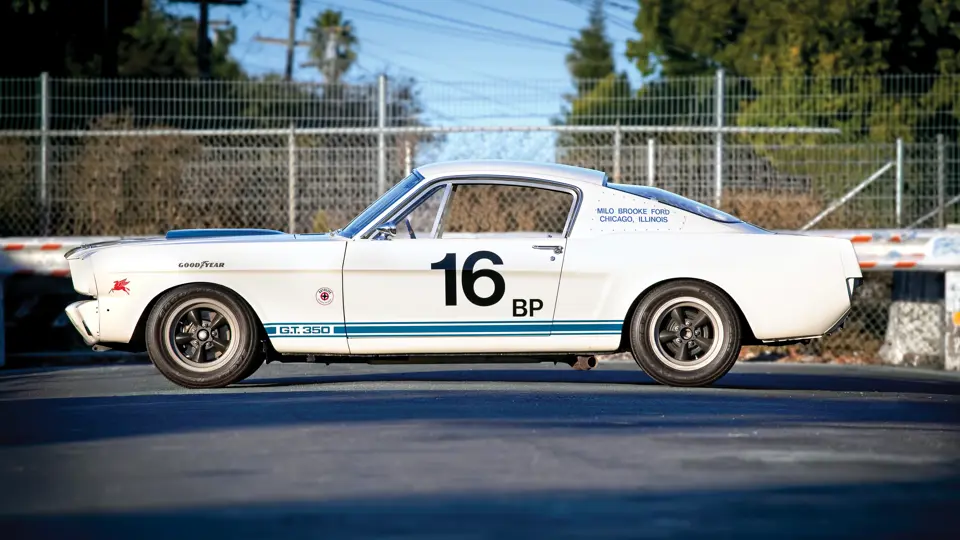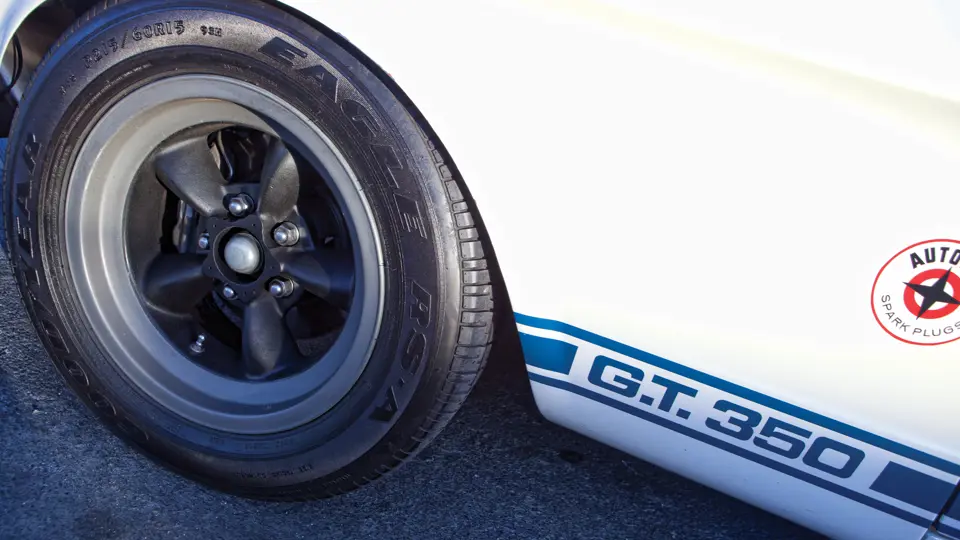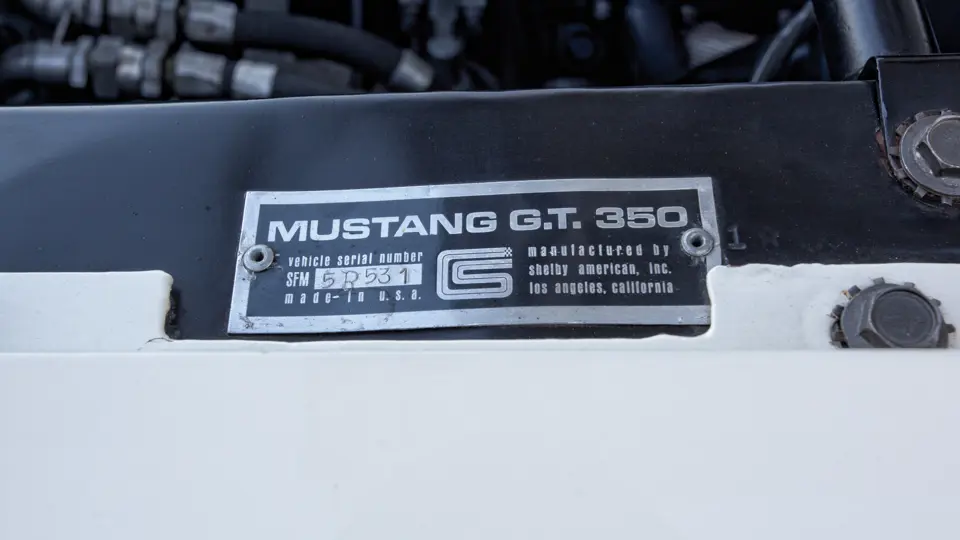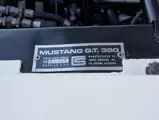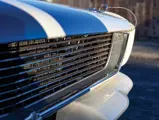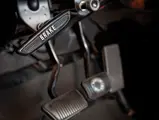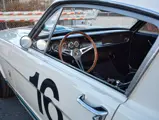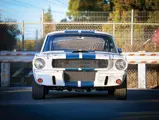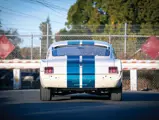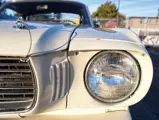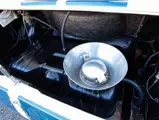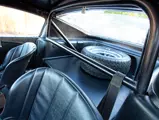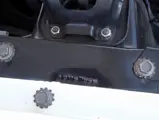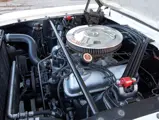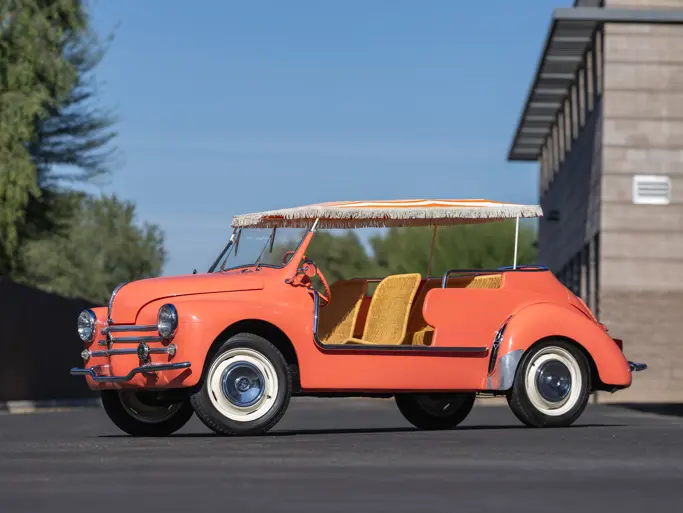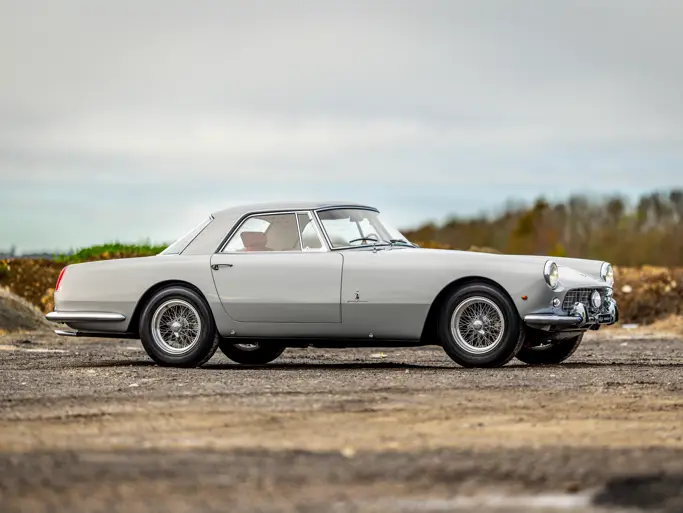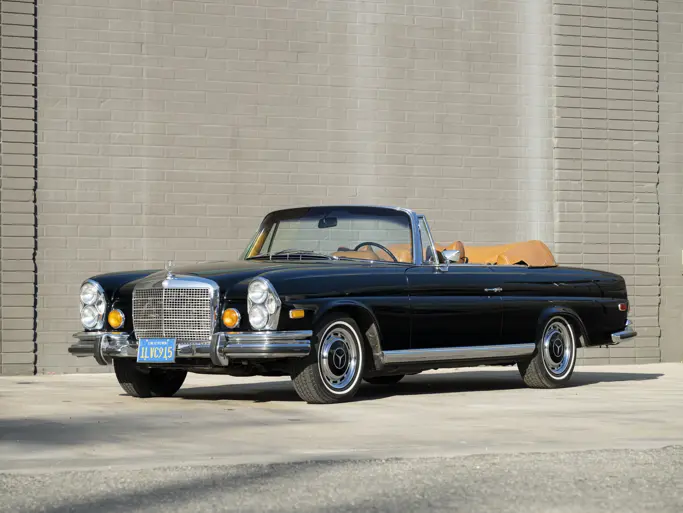347 cu. in. OHV V-8 engine with aluminum heads, four-barrel 800 CFM carburetor, four-speed manual transmission, independent front suspension with coil springs, live axle rear suspension with leaf springs and traction bar, and front disc and rear drum brakes. Wheelbase: 108 in.
• One of 34 production R-models built
• Ultimate racing/performance variant of the legendary GT350
• Faithfully restored and serviced by a noted marque expert
• Minimally raced and a very original example
• Known ownership history
• Multiple SAAC awards
Unquestionably, the Shelby Mustang is one of those rare American automotive icons that have transcended the collector car hobby, becoming a full-fledged popular culture phenomenon in the process. But the foundation of the legendary car, often lost in its now-mythic lore, was a more modest racing initiative intended to give Ford’s new Mustang a marketing edge over its anticipated competitors, the Barracuda and the Camaro.
As is widely known to even casual automotive enthusiasts today, Ford approached Cobra maestro Carroll Shelby in mid-1964 to oversee the program, and details were soon finalized for the provision of fastback-bodied Mustangs, a new body style for 1965. Shelby would homologate a street production run of at least 100 examples of the newly dubbed GT350 so that the car could qualify for SCCA B/Production competition. The ruggedly sporty GT350 street cars featured an upgraded suspension and brakes, with an un-tuned version of Ford’s famous 289 Hi-Po motor, which Shelby had recently utilized to great success in the Cobras. With just a hint of refinement in items like an elegant wood-rimmed steering wheel, the GT350 convincingly mimicked European GT sports car sensibilities while offering unbridled American horsepower and race-inspired weight distribution, epitomized by the placement of the battery and the fuel filler in the trunk.
As rugged and rare as the GT350 street cars were, though, they paled in comparison to the competition examples that were further modified for racing, of which only 36 were produced, including the two prototypes. These R-models arrived in stock-form from the San Jose factory, with even more equipment stripped away, absent of steel hoods and latches, rear seats, radios, heaters, an exhaust system, windows and rear glass, door panels, headliners, sound deadeners, and badging. From this blank slate, Shelby conducted the rigorous GT350 suspension tuning and has now extensively modified the motor. The famous Hi-Po engines were removed and disassembled, with the heads being shipped to Valley Head Service for porting and polishing. Upon return, the motor was internally rebalanced and rebuilt to blueprint specifications with the installation of a competition camshaft.
The cooling system was upgraded with a larger radiator and oil cooler, and an aluminum plenum was fitted to funnel air from the hood scoop to the Holley carburetor, which fed a new aluminum intake manifold. Body modifications included a new fiberglass front air dam in place of the bumper, Plexiglass windows and rear glass, and aluminum covers over the former c-pillar vents. Built in three separate batches during 1965 and early-1966, the R-models were completed with the re-installation of the engines, which were often installed irrespective of the car from which they originally came, an identification issue that was solved with a brand new Shelby American data plate featuring a newly assigned chassis number.
According to the Shelby American Automobile Club register, this heart-stopping and powerful R-model was date-ordered by the company on March 18, 1965, slightly more than a month after Ken Miles’ successful R-model debut, a victory at Green Valley Raceway. Shipped from Ford’s San Jose plant on May 20, this car was received by Shelby American two days later, and they began factory modifications on June 24, with work order number 17528. Completed on February 22, 1966, as an example of the third batch of R-models, this car was shipped on March 4 to Milo Brooke Inc., of Chicago, for retail.
Purchased exactly two months later by first owner William C. Stroh, of Northbrook, Illinois, 5R531 soon commenced a competition campaign at such venues as Lynndale Farms, Wilmot Hills, and Elkhart Lake in Wisconsin, as well as Clermont and Blackhawk Farms in Indiana, and the Mid-Ohio event. Acquired by Fred Cozzi, of Illinois, in 1967, the car passed one year later to Paul A. Von Fossan, of Kirkwood, Missouri, who commissioned a blueprinted engine rebuild by the renowned Holman-Moody. Founded by John Holman and Ralph Moody in 1957, Holman-Moody was a principle torchbearer of Ford engine racing after the corporate pullout from NASCAR at the end of 1956. The company has since become a legendary name within the Ford racing niche for their development and rebuilding of Ford powerplants for competition use. Following Holman-Moody’s work on the engine, it registered 369 horsepower on a dynamometer test, the diagnostic sheets of which still accompany the car’s file of documentation.
In 1969, this GT350 R found a more lasting home when purchased by Gary A. Cooper, of St. Louis, who kept the car until 1976. Sold then to Chuck Rayburn, of Mahomet, Illinois, the car was repainted in yellow and was purchased a year later by Mike Gaffney, of Bloomington, Illinois, who retained possession for over a decade. By 1990, 5R531 had been acquired by Gary Barnes, of Phoenix. Maryland. Mr. Barnes ensured that the aging Shelby Mustang received some much-needed attention, retaining Conover Racing and Restoration, of Hanover, Pennsylvania, to perform a sympathetic restoration, which included a complete mechanical refurbishment as well as a repaint in the original color livery.
Proprietor Tony Conover has been rebuilding classic Ford muscle cars since 1977, with particular focus on Shelby Mustangs, and he believes that he has probably restored more R-models than any other restoration shop in the country. He fondly remembers the overwhelming originality of 5R531, which retained all of its original sheet metal, a far cry from many of the exhaustively raced and frequently damaged examples that have passed through his care over the years. Following Mr. Conover’s exacting year-long restoration, the car was bought in September 1990 by Buddy Belzer, of Rapid City, South Dakota, and soon after, it embarked on a successful exhibition run. Presented at the SAAC-18 meet at Watkins Glen in July 1993, 5R531 drove away with the 3rd place Popular Vote in the R-model class.
Almost five years later, the car was purchased in January 1998 by John McKenna, of Baltimore, Maryland, and was returned by sheer coincidence to Conover Racing, whose craftsmen were delighted to recognize their prior restoration and to have an opportunity to freshen the car’s modestly exercised mechanicals, including some suspension tuning. Displayed that July at the SAAC-23 concours at Charlotte, North Carolina, the Shelby earned Gold status in the Original/NOS class and concurrently participated in the racing events at the Charlotte Motor Speedway. In June 1999, 5R531 received the 1st place Popular Vote at the SAAC-24 held at the Michigan Speedway, where it again ran in the high-speed events. Judging acclaim continued the following March, when the rare R-model won a 2nd place award at the Amelia Island Concours d’Elegance.
In July 2000, 5R531 was purchased by the consignor, a well-known collector who sought to add an R-model to his garage for gentle street driving. Displaying just 8,900 miles at the time of purchase, the car has accrued only approximately 1,000 miles of restrained use over the interim, implying that it remains a relatively fresh example that would require little attention for a new round of vintage racing. Additionally, the car has been fastidiously maintained over the last dozen years by a dedicated collection staff that have dutifully serviced the car as needed and started it monthly with mild five-mile drives to ensure fresh operating condition.
Upon acquisition, the consignor chose to lift out the engine to preserve it, replacing it with a powerful Bradshaw 302 motor that has been stroked to displace 347 cubic inches and was fitted with aluminum heads. The “original” Hi-Po motor was examined for identification, and although Shelby engines were often swapped from chassis to chassis, this unit was determined to bear a production stamp from a standard 1966 Ford Mustang Coupe. It is likely, therefore, that the car’s original motor was replaced at some point early in its life with this proper-specification Ford Hi-Po engine. Regardless, the period-correct motor is included with the car, accompanying it separately in a crate.
Chassis 5R531 continued to draw attention at the 2009 Palo Alto Concours d’Elegance, earning 3rd place in the 1965–1970 Competition Mustang class. Raced very modestly during its prime and minimally used since its highly authentic and expert restoration, this rare GT350 R is a pillar of American muscle, utterly delectable from every sensibility, be that of sound, sight, or the feel of its raw performance. It is a well-documented and awarded example of the Shelby Mustang racing legend that would ably crown the finest collections of Detroit muscle.




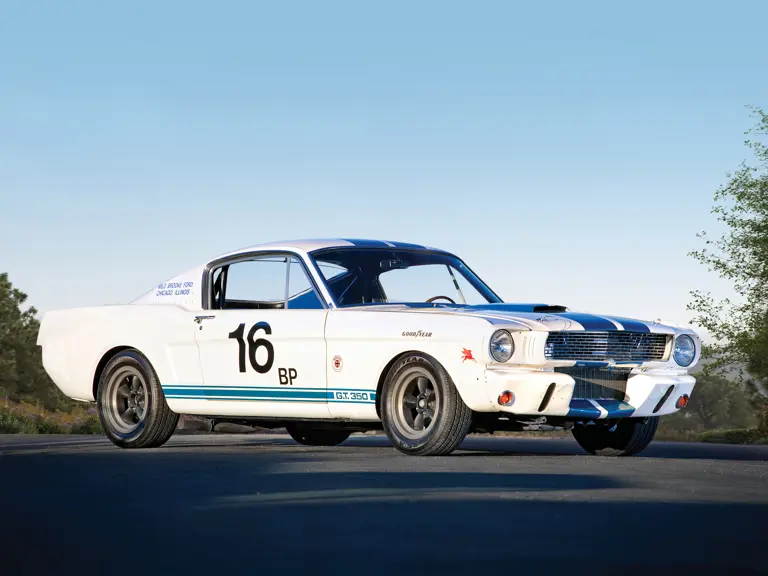
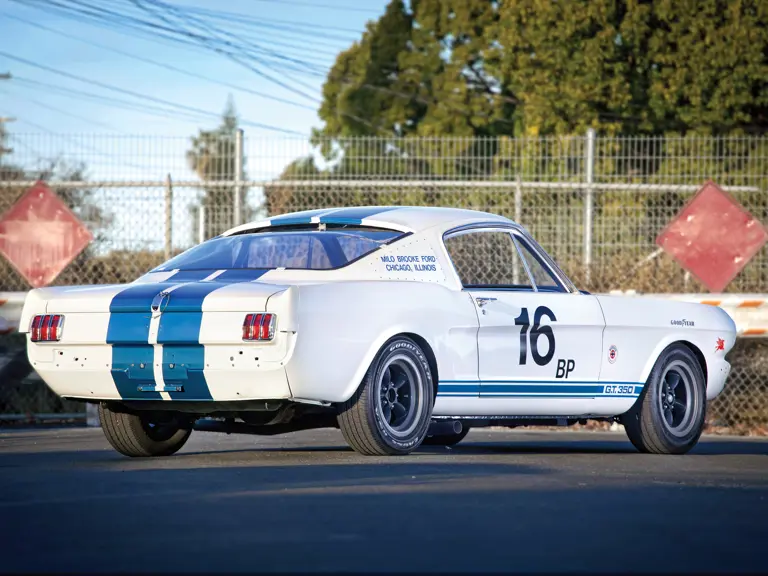
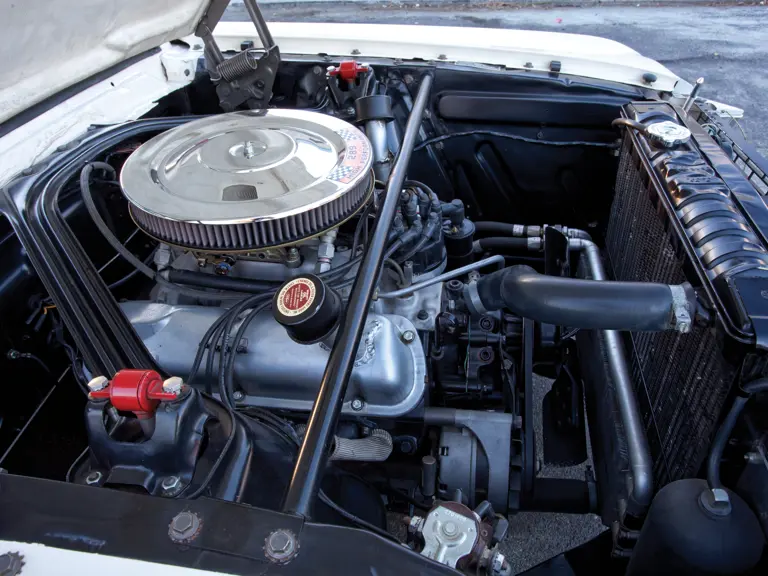
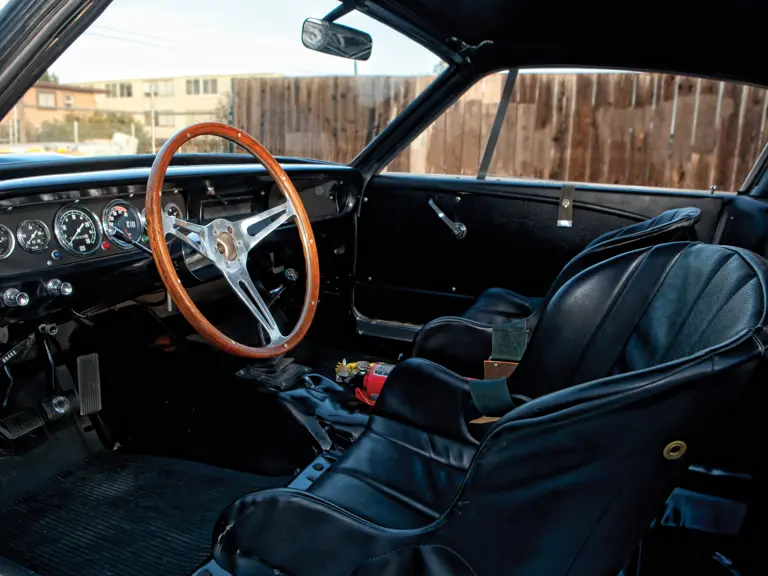

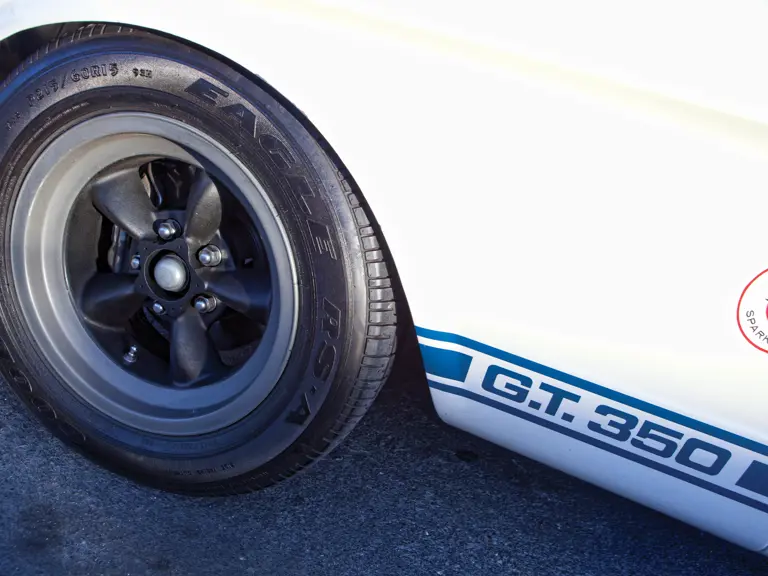
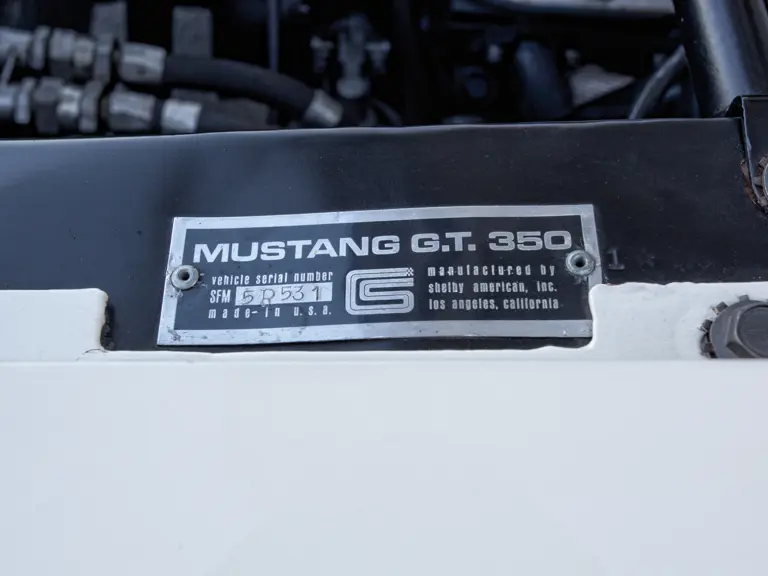
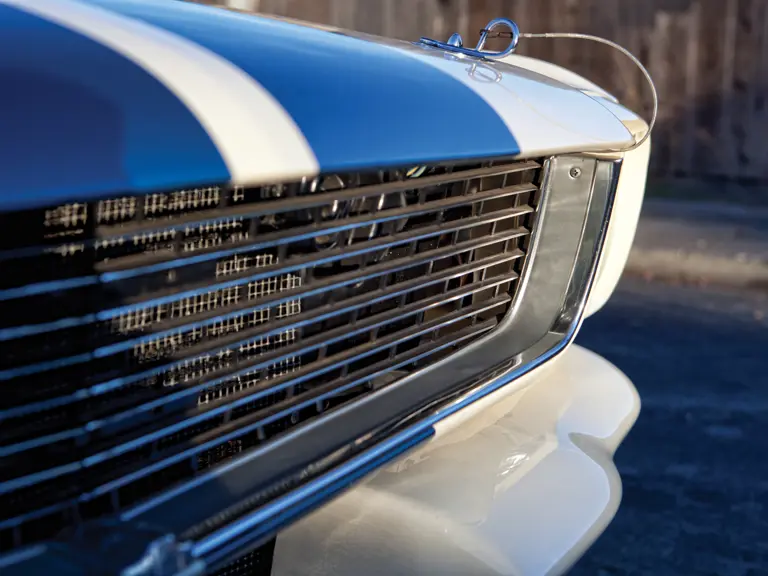
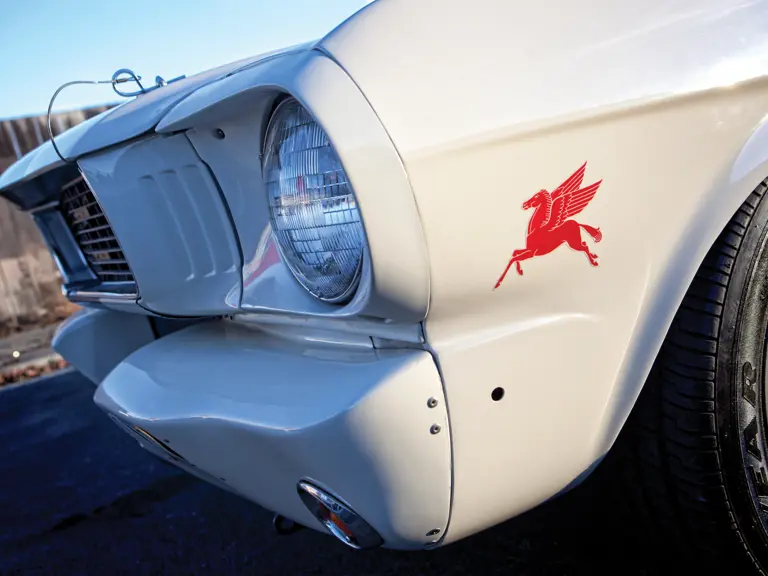
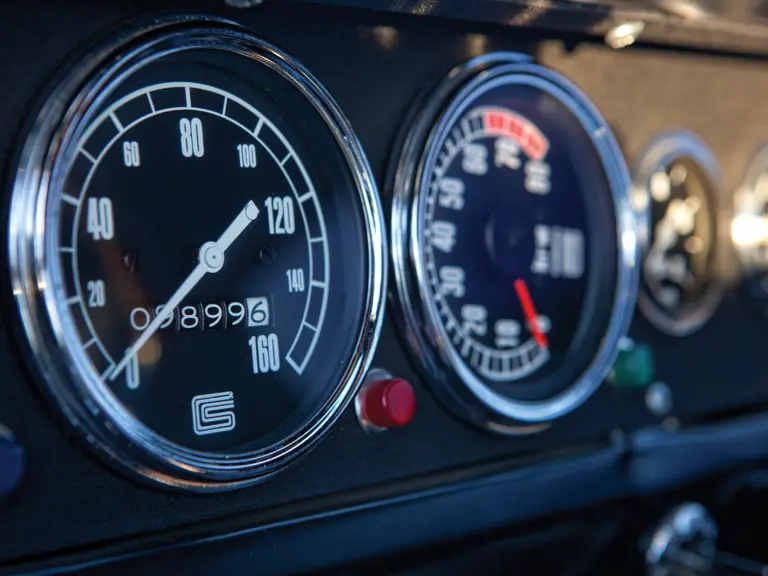
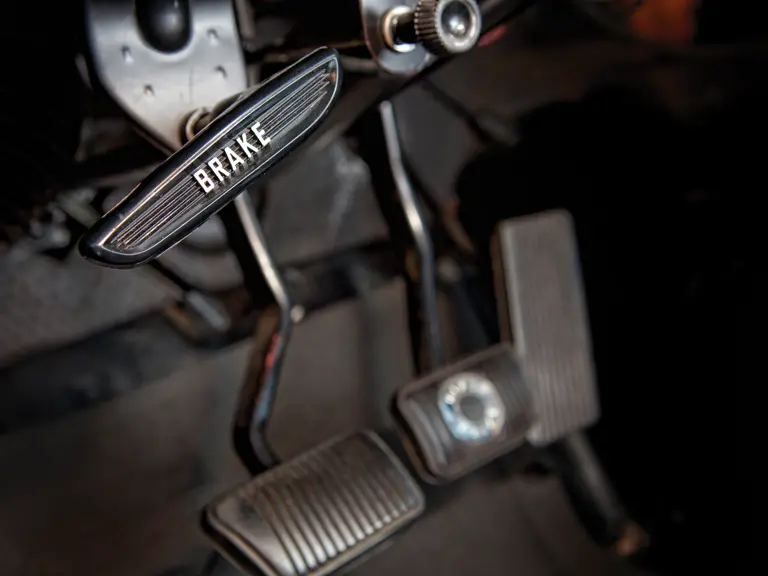
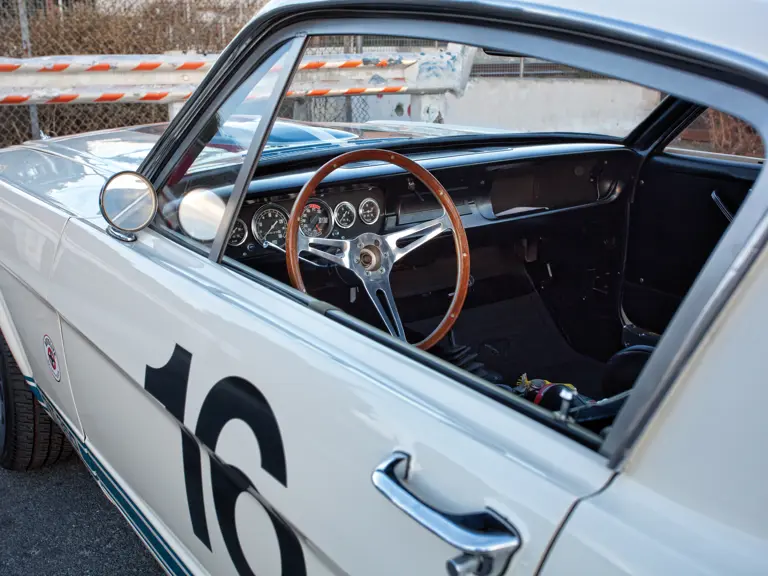
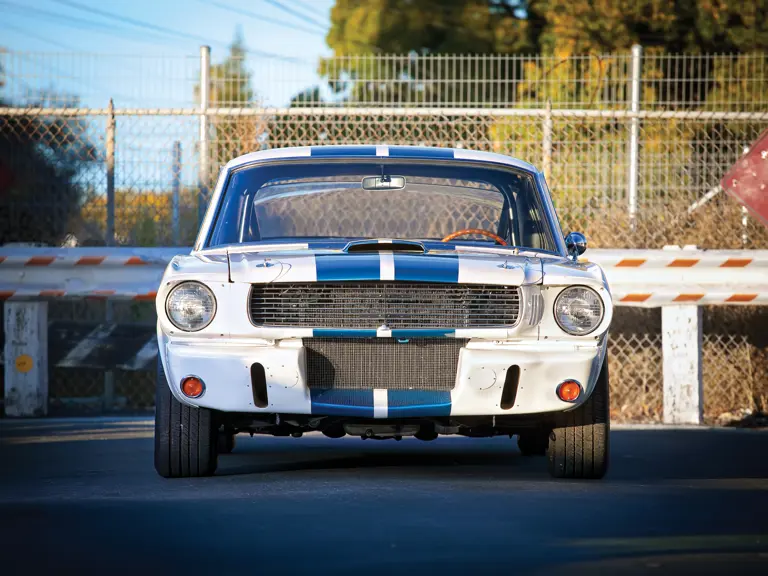
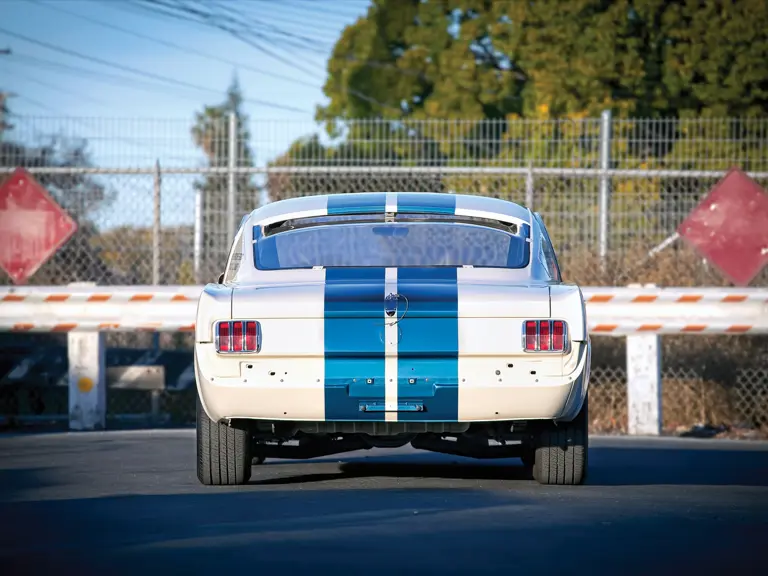
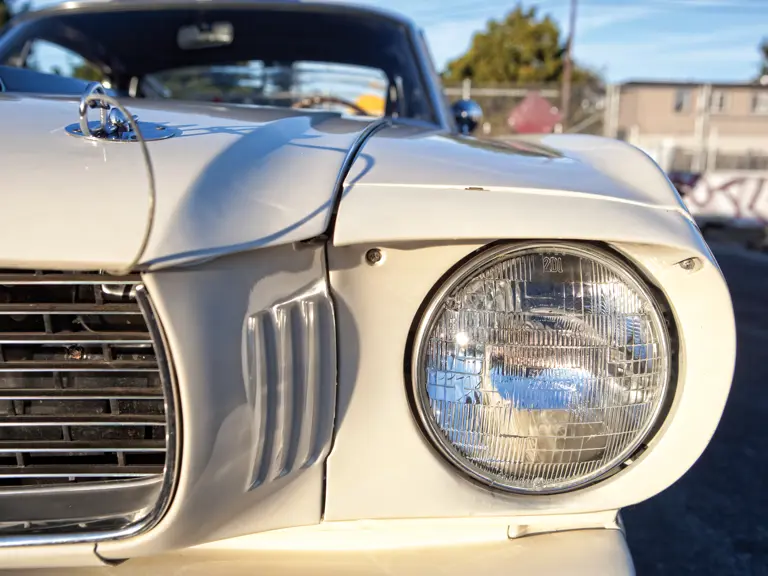
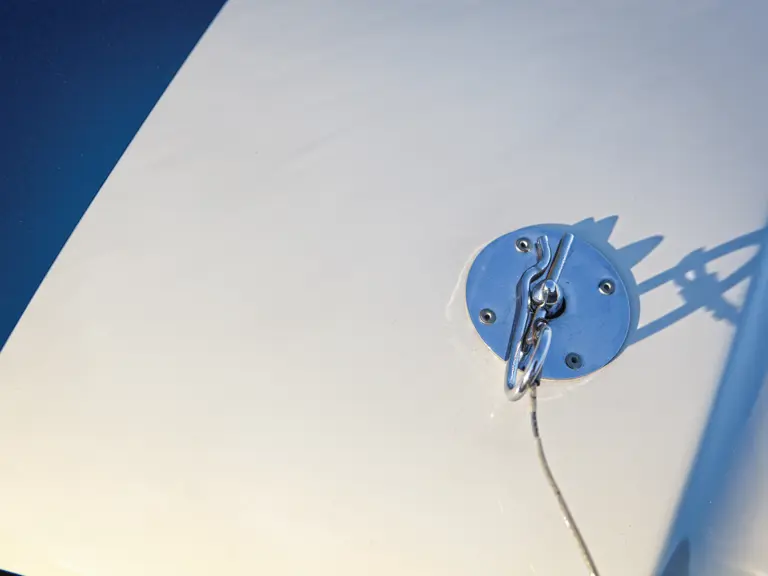
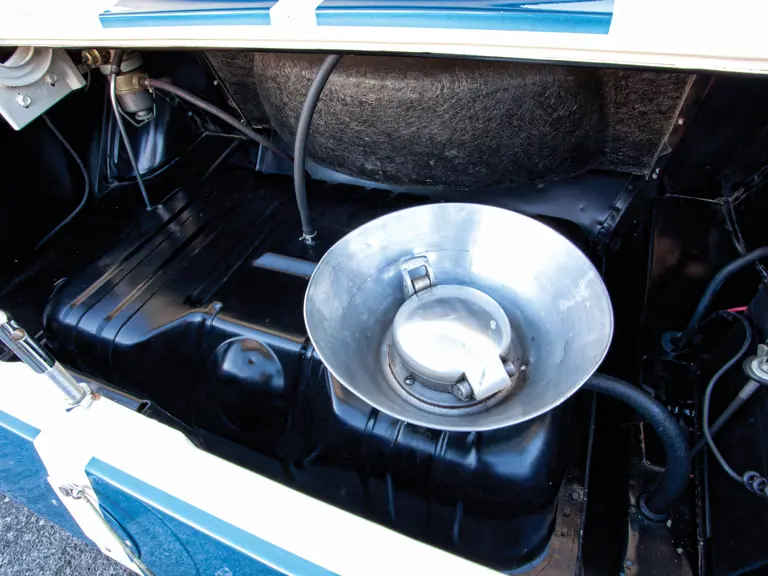
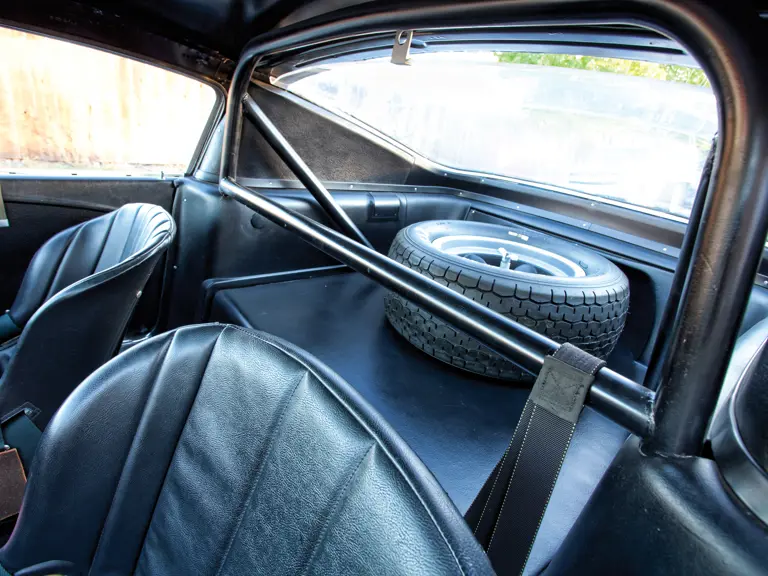
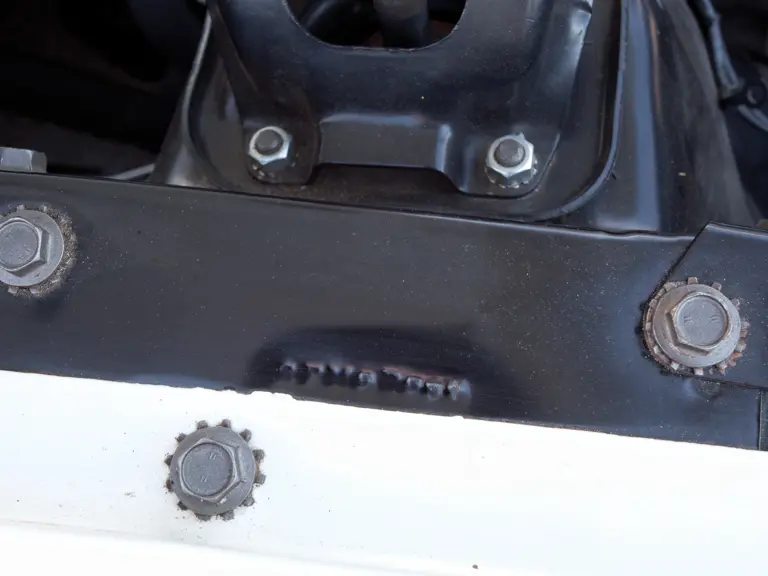
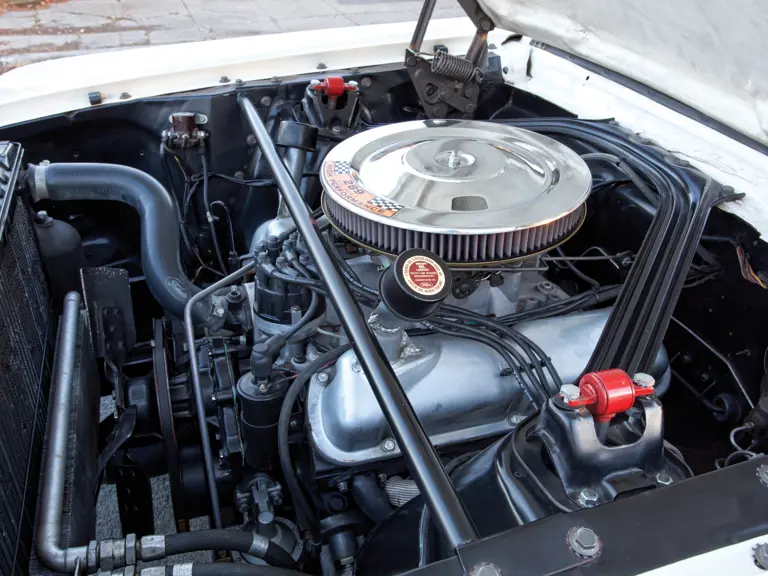
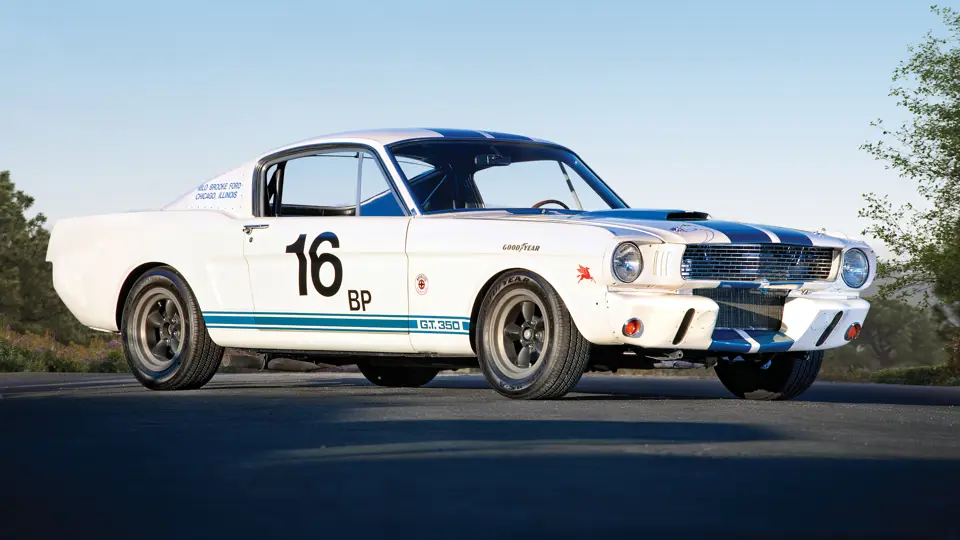
 | Phoenix, Arizona
| Phoenix, Arizona
